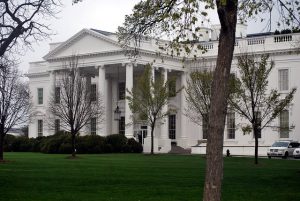Have you ever wondered if certain governmental actions reach beyond the Constitution? Maybe you’ve even wondered what our Founding Fathers really intended when they drafted certain provisions of the Constitution. If these thoughts have crossed your mind, maybe it’s time to revisit the Constitution and apply your critical thinking skills to find the answers.
Why is Studying American Government Important?
 To some people, studying American Government is considered boring or inapplicable to our daily lives. We all have very strong emotions when we hear the words “freedom,” “justice,” “rights,” and “politics.” Do these words really fit into the study of American Government? Absolutely! Each of these concepts was instrumental to the vision of our Founding Fathers. After all, they had just fought the American Revolution to preserve these ideals against tyranny!
To some people, studying American Government is considered boring or inapplicable to our daily lives. We all have very strong emotions when we hear the words “freedom,” “justice,” “rights,” and “politics.” Do these words really fit into the study of American Government? Absolutely! Each of these concepts was instrumental to the vision of our Founding Fathers. After all, they had just fought the American Revolution to preserve these ideals against tyranny!
Each concept invites different images and emotions for each of us and represents an integral part of American Government. Government touches everything around us and trickles down, so to speak, from the national level to the local level, affecting our everyday lives. Regulations govern the products we purchase. Taxes imposed on our purchases affect the costs of goods and services. Government delivers our mail, and provides first responder services such as police and fire fighting services.
Why Analyze the Constitution and the Intent of the Founding Fathers?
Utilizing critical thinking skills in studying the Constitution and the intent of the Founding Fathers is not a useless exercise, especially when we consider the political climate of the last several years. You will find a copy of the Constitution here. There are multiple questions we can ask ourselves with respect to any action taken by government. What branch of government is taking the action we are examining? What does the Constitution actually say about that particular branch of government? What are the purposes and duties of that branch of government? How does this action relate to the actions of the other two branches? Would this action be more properly handled by a different branch? What are the checks and balances possessed by each branch of government in this scenario? Do the Federalist Papers shed light upon the intent behind relevant provisions applicable to this action? What is the wording of the Constitutional provision at issue? Why is it worded this way? Are there any other factors to consider?
Returning to the Constitution should always be the first step in any analysis of governmental action. Reviewing the provisions at issue, as well as the role crafted by our Founding Fathers for each branch, is instrumental in determining whether an action exceeds the authority granted by our Constitution and violates the intent of the Founding Fathers.
About the Author
Ann LeBlanc loves learning and deep discussions. She received her Juris Doctorate from the Paul M. Hebert Law Center at Louisiana State University in Baton Rouge, Louisiana. She has a B.S. degree in finance, and is licensed to practice law in the states of Texas and Louisiana. Ann’s experience includes many facets of the legal field and she has argued and written legal briefs at both the state district and appellate court levels in Texas and Louisiana and has also represented clients in Federal court. Ann is also an author and has distinguished herself in the authoring of legal publications and the presentation of seminars for clients and organizations such as the National Business Institute and various insurance agencies.
Ann fulfills her love of learning, however, by teaching. Ann is currently an adjunct professor with LeTourneau University where she teaches American Government and Criminal Justice to dual credit students of Excelsior Classes. Ann has also served as an Adjunct Professor at the University of Louisiana – Lafayette, teaching Business Law. Her passion for education extends to the home, where she homeschools her own children employing the Socratic method. A keen lover of logic, Ann is passionate about teaching critical thinking skills and empowering today’s youth with the ability to analyze the problems of tomorrow, to ensure that our God given rights and freedoms remain unalienable.




